Does personality change with age? From the moment we are born, our personalities begin to take shape. But do they remain fixed throughout our lives, or is change inevitable?
Personality, the unique blend of traits and behavioral patterns that define an individual, is a fascinating subject of study. It shapes our thoughts, actions, and interactions, ultimately influencing our overall well-being. One question that often arises is whether personality undergoes transformations as we journey through different stages of life.
Some people believe that personality is set in stone, and that our traits and qualities remain consistent throughout our lives. Others argue that personality is a fluid and dynamic entity, influenced by a range of internal and external factors.
Let us delve into the intriguing dynamics of personality and explore the question: Does personality change with age?
The nature of personality
Before we dive into the age-related changes in personality, it’s important to understand the nature of personality itself. Personality is a complex and multi-dimensional construct and an amalgamation of various factors, including genetics, environment, and individual experiences. It involves a range of traits, characteristics, and behaviors.
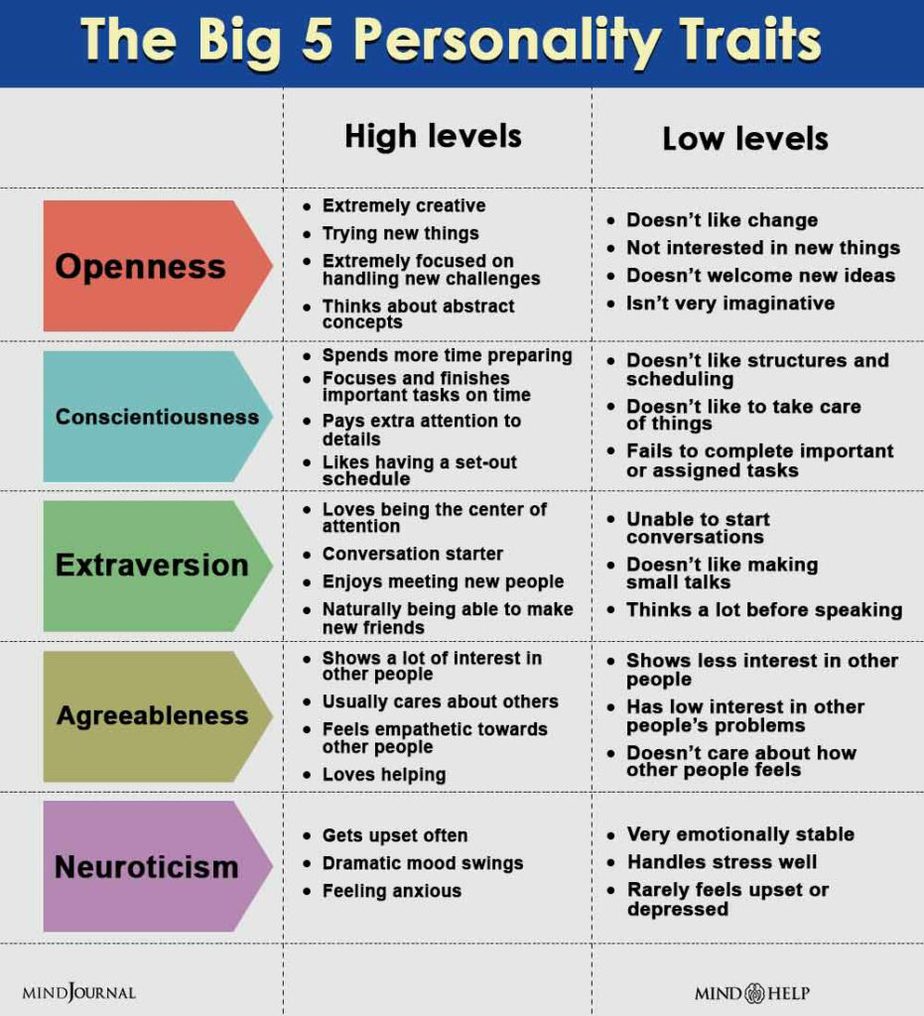
Psychologists use various models and theories to explain personality, but one of the most widely used is the “Big Five” model. The Big Five model comprises five broad dimensions of personality:
- Openness
- Conscientiousness
- Extraversion
- Agreeableness
- Neuroticism
Each of these dimensions includes a range of specific traits and behaviors which form the foundation of an individual’s unique character and can be used to describe an individual’s personality.
Does personality change with age?
The debate on whether personality changes with age is a complex one. There are some reasonable arguments on both sides.
On one hand, some longitudinal studies show that personality remains relatively stable from young adulthood through middle age. Traits like extroversion, agreeableness and neuroticism seem to remain largely the same over decades. This suggests that personality by middle age is largely set in stone.
On the other hand, there is some evidence that personality does evolve and adapt as people age. Research has shown that personality can change over time, but the extent and direction of these changes can vary depending on a range of factors.
One of the most consistent findings in the research on personality development is that people tend to become more conscientious and emotionally stable as they age. They also show declines in extroversion and openness.
Related: The 7 Year Cycle: How Your Body and Mind Evolve Every 7 Years
This means that they become more responsible, reliable, and dependable, and are better able to manage their emotions and cope with stress. It indicates that personalities do become more ‘mature’ with age and this pattern of change is often referred to as the “maturity principle.”
Other dimensions of personality, such as extraversion, agreeableness, and openness, tend to show less consistent patterns of change over time. Some studies have found that extraversion and openness decline slightly with age, while others have found no significant changes. Agreeableness, on the other hand, tends to increase slightly with age, as people become more empathetic and compassionate.
So, does personality change with age? The answer is yes, but with some important caveats. Various factors, including life experiences and developmental milestones, can contribute to shifts in personality traits.
Personality and age
While personality traits generally exhibit stability, personality does undergo changes with age. Early adulthood, midlife, and later life all bring unique opportunities for personal growth and transformation.
1. Early adulthood: A time of exploration and growth
During early adulthood (typically between the ages of 20 to 40), individuals often experience significant life transitions, such as completing education, starting careers, and establishing long-term relationships. These experiences can lead to shifts in personality traits.
For example, a naturally introverted individual may become more socially outgoing as they navigate new social environments.
2. The midlife transition
Midlife, usually occurring around the age of 40 to 65, is often associated with a period of reflection and reevaluation. Individuals may face changes in their personal and professional lives, such as career shifts, parenting responsibilities, or caring for aging parents.
These challenges can prompt introspection and potentially result in changes to personality traits. Some individuals may become more self-assured and emotionally stable during this phase, while others may experience heightened neuroticism due to increased stress.
3. The golden years: Personality in later life
Contrary to popular belief, personality can continue to evolve in later life. Research indicates that individuals tend to become more agreeable, emotionally stable, and less neurotic as they age.
The “wisdom effect” may play a role, as older adults draw upon their accumulated life experiences to navigate challenges with increased resilience and emotional intelligence. Moreover, aging often brings a greater sense of self-acceptance and contentment, contributing to positive shifts in personality traits.
Related: Do People Really Change? Surprising Revelations!
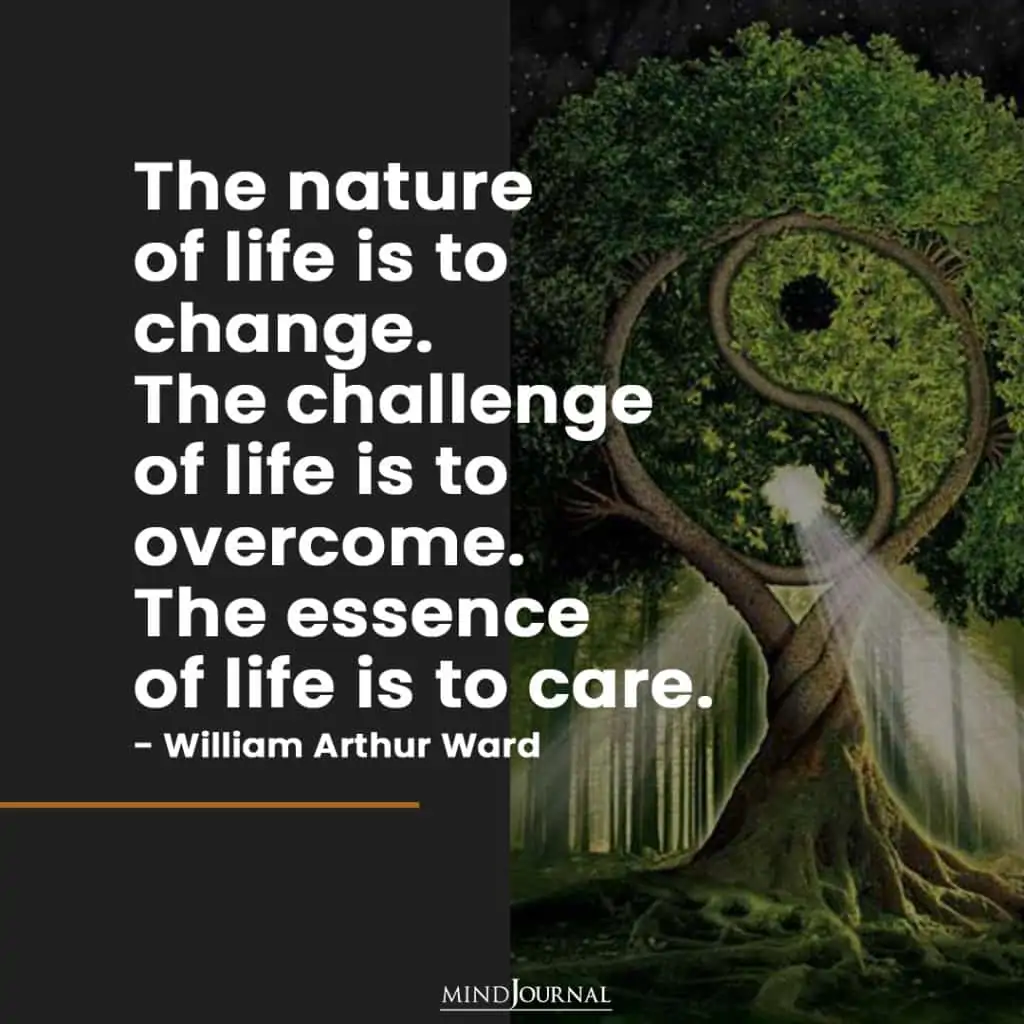
Factors that contribute to personality change
Now that we have gained some understanding about does personality change with age, let’s explore what factors contribute to changes in personality over time.
There are several key factors that researchers have identified as playing a role in shaping personality development.
1. Life experiences
Life experiences, such as major life events (unemployment, grief, divorce, having children, moving to a new city), can have a significant impact on personality development. For example, going through a divorce or experiencing a traumatic event can lead to changes in personality traits such as neuroticism.
2. Biological factors
Biological factors, such as genetics and hormonal changes, can also play a role in personality development. For example, changes in hormone levels during puberty can lead to changes in personality traits such as extraversion.
3. Cultural and social factors
Cultural and social factors, such as cultural norms and social support, can also influence personality development. For example, living in a collectivist culture that values harmony and cooperation may lead to an increase in agreeableness over time.
4. Personal goals and motivations
Finally, personal goals and motivations can also shape personality development. For example, if someone sets a goal to become more outgoing and sociable, they may work to develop their extraverted traits over time.
Key changes in older adults
Does personality change with age? Yes. But what exactly are those changes?
Many studies have identified key personality changes that tend to occur as people age. These include:
1. Increased emotional stability
Older adults tend to become more emotionally stable and less prone to negative emotions. They develop better coping skills to deal with life stresses.
2. Higher conscientiousness and impulse control
People become more organized, dependable and willing to follow rules as they age. Their impulse control and ability to delay gratification also improves.
3. Declines in extroversion and openness
Older individuals often prefer more solitary activities and score lower on measures of curiosity, thrill-seeking and openness to new ideas. This indicates a reduction in extroversion and openness.
4. More agreeableness and less hostility
With age comes a tendency towards more kindness, forgiveness, altruism and agreeableness in interpersonal relationships. Hostility and aggression declines.
5. Increased focus on emotional goals
There is a shift from achievement and material goals to more emotional and interpersonal goals as people age. Older adults prioritize feeling happy, loved and connected.
Related: The Kubler Ross Change Curve: Understanding The 5 Stages Of Change
6. Nature vs nurture
The debate on “does personality change with age?” also comes down to the influence of nature vs nurture. While some studies show genetic stability of personality traits over time, others highlight the role of life experiences in shaping personality as people age.
In reality, both genetic predispositions and life experiences likely interact to determine if and how personality changes with advancing years. More research is needed to better understand this complex interplay.
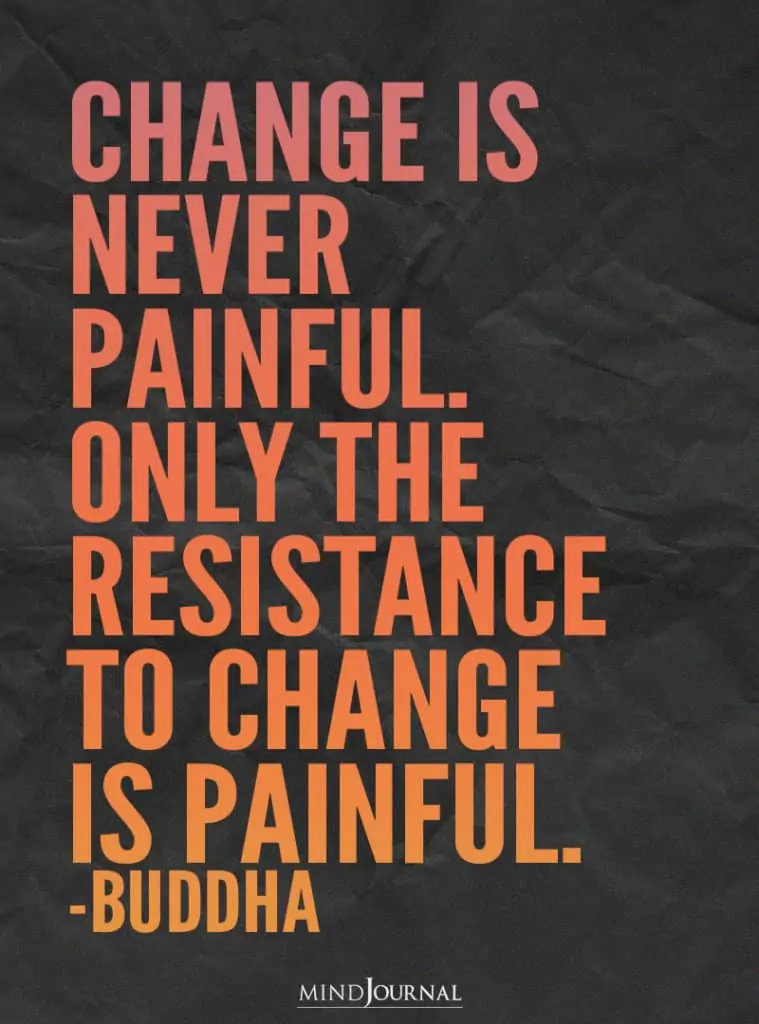
Implications of personality change with age
Now that we know the answer to does personality change with age, let’s explore as if such personality change has any important implications for individuals and society as a whole.
For individuals, understanding that their personality is not set in stone can be empowering, as it means that they have the potential to grow and develop as they age. This can be particularly valuable for people who may have struggled with certain aspects of their personality in the past, as it means that they can work to change these traits over time.
At a societal level, understanding personality development can have implications for a range of areas, such as education, healthcare, and the workplace. For example, educators may be able to help students develop their conscientiousness and emotional stability through targeted interventions and support.
Healthcare practitioners may be able to help patients cope with traumatic events by providing interventions that target neuroticism. And employers may be able to design work environments that support personal growth and development, which can lead to improved job satisfaction and productivity.
Related: Do You Have A Turbulent Personality? 8 Signs To Look Out For
Embracing personal growth
While personality changes with age, it’s important to note that core aspects of personality tend to remain relatively stable. Individuals often display consistent patterns of behavior that align with their intrinsic traits.
However, the ability to adapt and display flexibility in different situations becomes increasingly valuable as one navigates the complexities of life.
Understanding that personality can change with age also opens up avenues for personal growth and self-improvement. Recognizing areas for development and consciously working towards positive change can enhance well-being and relationships.
It’s never too late to cultivate new habits, acquire new skills, and foster qualities that align with our values and aspirations.
It’s crucial to acknowledge that not all individuals experience the same personality changes with age. Personalities are unique, and the extent and direction of changes can vary greatly from person to person.
Additionally, contextual factors, such as cultural norms, societal expectations, and personal circumstances, can influence the trajectory of personality development.

Takeaway
Does personality change with age? Whether personality changes with age remains an open question.
Although there are reasonable arguments on both sides, most research indicates that while core personality traits do show some stability from young adulthood, personalities do evolve and adapt to some extent as people grow older.
Key personality dimensions like conscientiousness, emotional stability, and priorities are likely to change as people age, making personalities more ‘mature’ even as they retain some individual uniqueness. However, the magnitude and direction of personality change likely varies across individuals.
A complex interplay of nature and nurture likely determines the extent to which personalities change across the lifespan. More research will help scientists better clarify how personality actually does change – or remain the same – with advancing years.
Related: Embrace And Adapt: 5 Crucial Life Lessons We Can Learn From The Choluteca Bridge
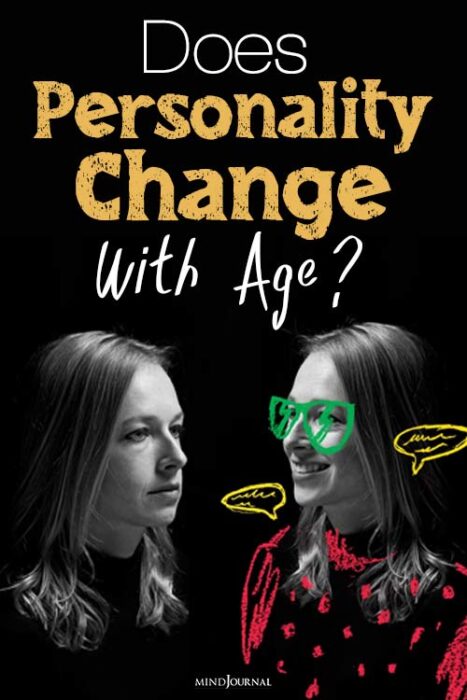
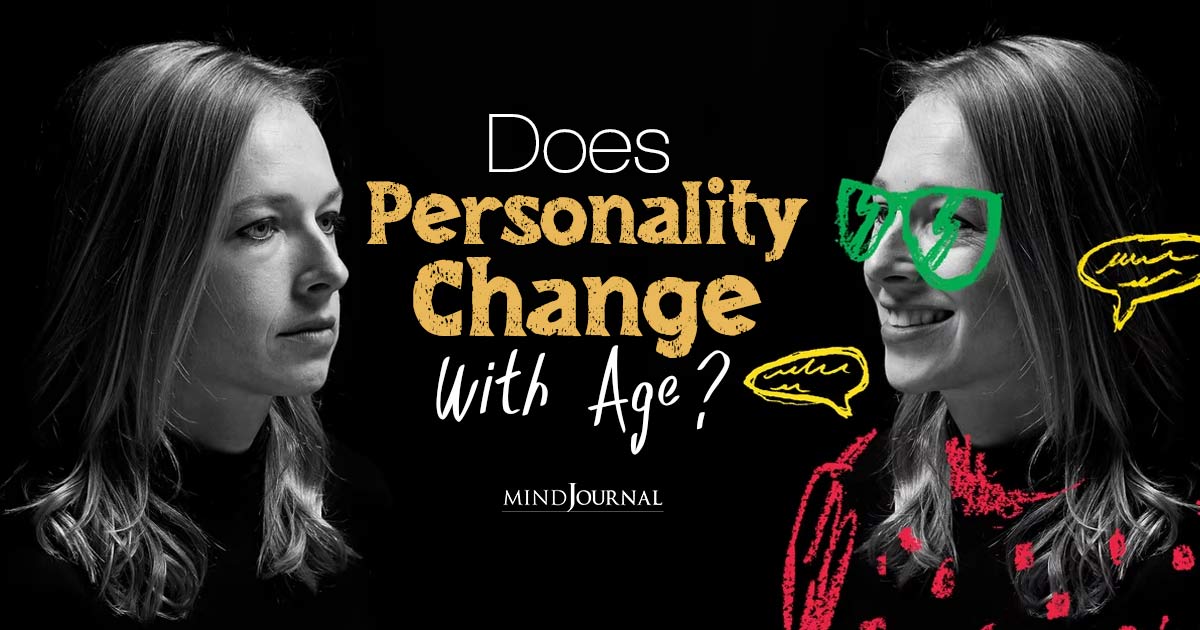
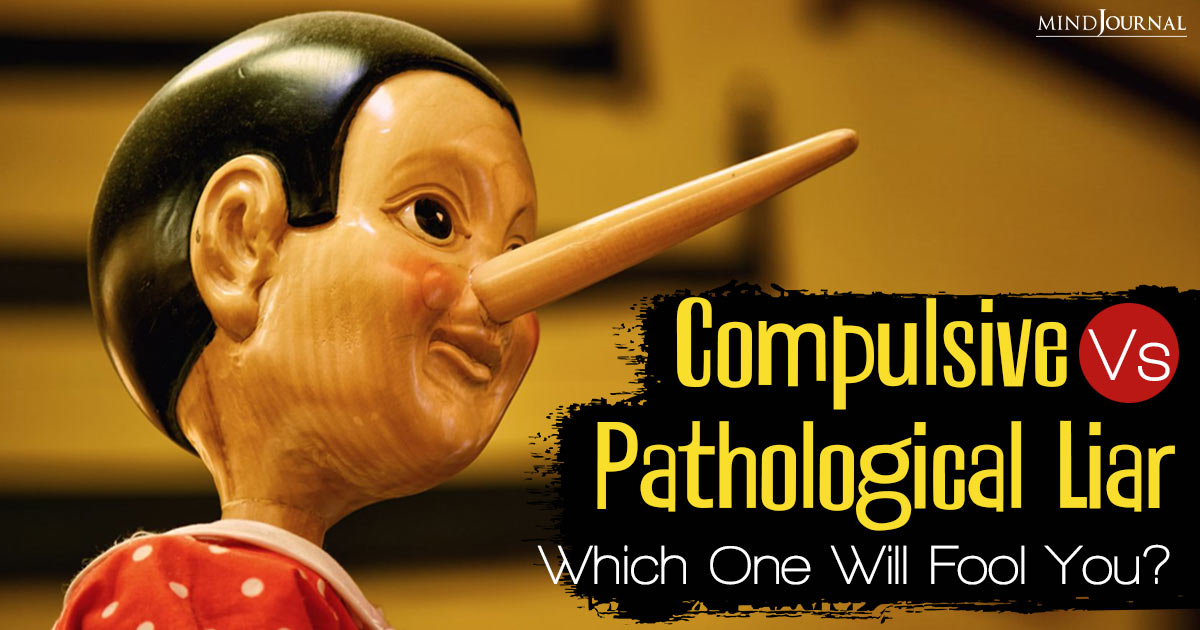


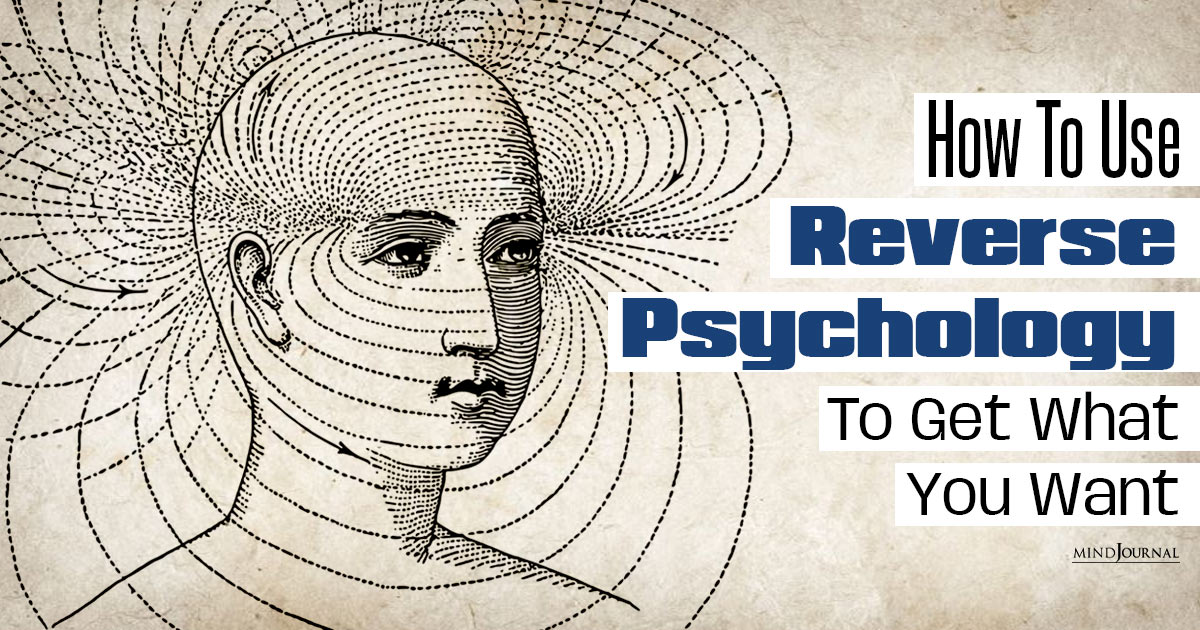



Leave a Reply
You must be logged in to post a comment.